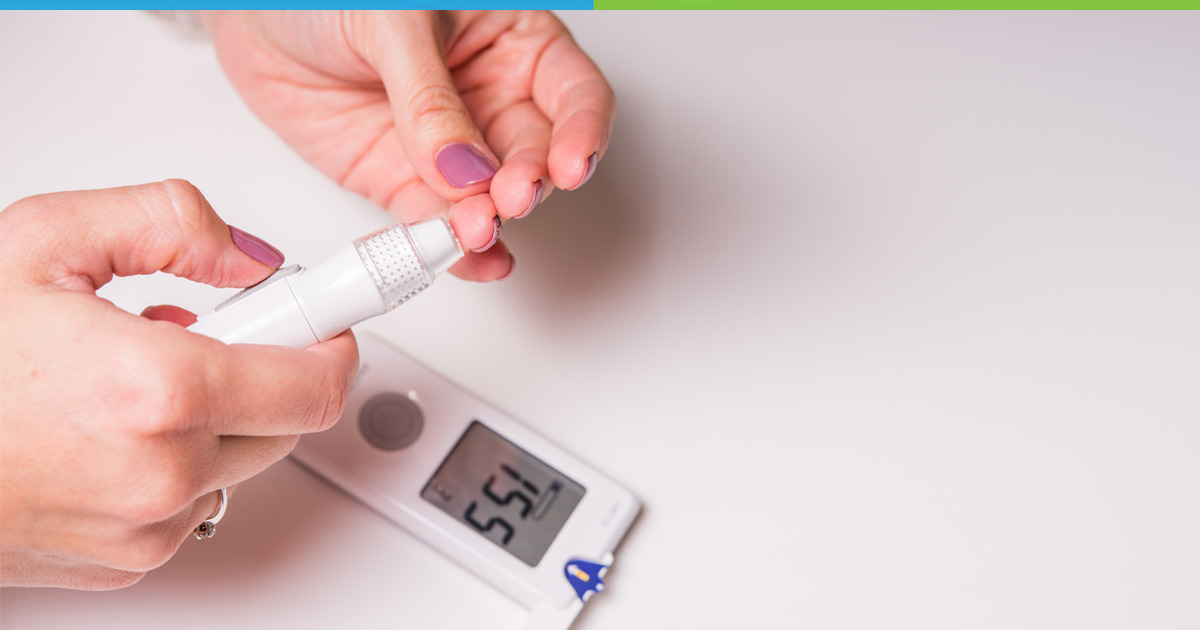Diabetes – Symptoms and Causes, Complications and Treatment

In the current epoch, Diabetes has become the most common health problem in the maximum number of people globally. Diabetes is actually caused when blood glucose or blood sugar levels in the body increase. Due to increased sugar levels in the blood, most of the people get Diabetes. However, there are different types of Diabetes.
Some of them may get a type of Diabetes that is very complicated. In some people, the Diabetes type may not be critical and it is possible to manage it through a few lifestyle changes. Through this blog, our readers will be able to understand more about Diabetes, its cardinal symptoms, treatment options and a lot more.
Here is an excerpt from a video interview with Dr. L. Venkatesh, Director and Chief Consultant Physician at Omni Hospitals, Vizag on the topic Diabetes, types of Diabetes, its causes, symptoms, how to diagnose, complications of Diabetes and more. Get answers to all your queries about Diabetes and its complications in children, adults and pregnant women.
Q. What is Diabetes?
A. Diabetes is a metabolic disorder that occurs due to increased blood sugar levels. It is actually caused due to insulin secretion deficiency or insulin resistance. In fact, blood glucose is the cardinal energy source and produces from the food that we eat in our day to day lives.
Insulin is a hormone that helps in transforming glucose from food into the cells for energy. Whenever a human body doesn’t produce adequate insulin, glucose remains in the blood and doesn’t reach cells. As a result, over time, glucose levels in the blood increases eventually causing Diabetes.
Q. What are the types of Diabetes?
A. There are different types of Diabetes. The most common types of Diabetes include:
- Type 1 Diabetes
- Type 2 Diabetes
- Gestational Diabetes
These three are the most common types of Diabetes that we usually come across in the maximum percentage of people. Besides these types, there are a few less common types.
Q. What is Type 1 Diabetes?
A. Type 1 Diabetes is an auto-immune disorder, which is seen in some people below 30 years of age and is also witnessed in children. In this Type 1 Diabetes disorder, we can confront the symptoms at an early stage. Some of the symptoms that appear all of a sudden include rapid weight loss, lack of insulin levels in the body and more. If these symptoms are seen in children then, such kids must depend on insulin for a lifetime.
Q. Explain Type 2 Diabetes?
A. Type 2 Diabetes is another most common type of health disorder that is usually witnessed in adults between 30 to 40 years of age. In this type of Diabetes, people witness mild symptoms. In such adults, the production of insulin will be in a normal amount. But, due to insulin resistance, the functioning may not be proper. People with Type 2 Diabetes may have complications during diagnosis.
Q. What is Gestational Diabetes?
A.Gestational Diabetes is a type of diabetes that occurs in women during pregnancy.In such pregnant women, there will be increased health risks both for mother and baby. Women with gestational diabetes during pregnancy can manage this type of diabetes through insulin injections.
Q. What are the complications of Diabetes?
A.There are two types of complications in people with Diabetes. It includes acute complications and chronic complications.
Acute Complications
- Diabetic ketoacidosis
- Hyperosmolar Diabetic coma
When the patient lands in critical conditions due to increased blood sugar levels, they may go into a coma. Such patients must be treated in the ICU [Intensive Care Unit].
Chronic Complications
Some of the most common chronic complications include:
Neuropathy:
It is the most common chronic complication of Diabetes. It causes nerve damage in patients with Diabetes in the chronic stage.
Retinopathy:
It is another complication in which the patient may end up causing eye damage.
Nephropathy:
It is the involvement of kidneys wherein the patient’s kidney may get damaged due to Diabetes. Nephropathy is another common chronic complication of Diabetes.
Cardiovascular Diseases:
These diseases are related to the heart. Some of the chronic complications of Diabetes include Heart Attack, Brain strokes, heart strokes and more.
Amputations:
People with Diabetes may have the risk of amputations. It means, when Diabetic patients get ulcers or wounds, they won’t heal like the way it heals in normal people. It is another chronic complications that we come across in diabetic patients.
Q. What are the cardinal [primary] symptoms of Diabetes?
A. Some of the cardinal or the major symptoms of Diabetes include:
1. Polyuria
It is very common that most of the diabetic patients frequently pass urine. There is a reason behind it. This type of symptom is called Polyuria. Polyuria is the need to urinate on a frequent basis. When the blood sugar levels are abnormal i.e., increased sugar levels, it excretes through the kidneys in the form of urine automatically.
Glucose is the high-density molecule present in the body. During the excretion process, glucose brings out more water alongside during urination. As a result, most of the diabetic patients complain about the increased frequency of urine.
2. Polydipsia
Polydipsia is another symptom in diabetic patients wherein they feel increased thirst. Due to the heavy loss of water in the body, the diabetic patient reaches the dehydration state. In such a situation, the patient feels more thirsty. So, the patient often has a thirsty feeling and ends up drinking more water. This particular symptom is known as Polydipsia.
3. Polyphagia
Polyphagia is related to increased appetite. It is another cardinal symptom of Diabetes. In such a case, the patient intakes food repeatedly. Usually, glucose present in the blood produces energy when sugar molecules in the blood enter into the cell wherein it burns and releases calories.
In Diabetic patients, the glucose molecule may not enter into the cell due to the lack of insulin. Eventually, the production of calories in the body reduces. As a result, the patient feels more hungry due to the limited production of calories. This symptom is called as Polyphagia.
Whenever a person complains about having the aforementioned cardinal symptoms then, they are said to have Diabetes. However, such people must consult a doctor and get a Diabetic test for confirmation.
Q. How to Diagnose Diabetes?
A. There are some procedures to diagnose Diabetes in people. People who suspect Diabetes after witnessing some of the aforementioned symptoms can diagnose diabetes through a few blood sugar tests. Some of them include:
Fasting Blood Sugar:
The normal range in fasting blood sugar is below 100mg/dl. If FPS levels are more than 125mg/dl then, they are said to have Diabetes.
Post-Prandial Blood Sugar:
The normal range in post-prandial blood sugar is below 140mg/dl. If the patient is diabetic then, they will have more than 200mg/dl.
Random Blood Sugar:
Random Blood Sugar is sometimes referred to as RBS. The normal range is below 200mg/dl. If the patient’s random blood sugar level is more than 200mg/dl alongside few cardinal symptoms of diabetes then, they are said to have diabetes.
Q. What is HbA1c?
A. HbA1c means Glycosylated Hemoglobin. In general, sugars are attached to the RBC molecule. The lifespan of the RBC molecule is 120 milligrams. By estimating the HbA1c level, it gives an approximate idea of the sugar levels in people for the last 3 months. Usually, this particular test is performed to monitor long-term control of Diabetes.
Q. How can we manage Diabetes?
A. The management of Diabetes includes multitasking. People who are planning to manage their blood sugar levels must and should make certain modifications in lifestyle. Some of the lifestyle changes include doing exercise, intake of insulin, taking proper drugs such as oral hypoglycemic drugs.
Q. What lifestyle precautions are necessary to Manage Diabetes?
A. Patients with diabetes must follow a specific diet and make various lifestyle changes to manage diabetes. They should evade or reduce the intake of carbohydrates, fatty foods and more.
- Reducing the consumption of high glycemic index substances
- Avoid intake of carbohydrates
- Maintain proper protein diet
- Intake of fresh fruits and vegetables
- Doing any type of exercise like aerobic exercise for about 30 minutes a day. They must practice doing exercise at least 5 days a week.
Q. What is Hypoglycemia?
A. Hypoglycemia is a significant complication of diabetes. It is most commonly seen in patients who are surviving on insulin. If the patient is only on oral diabetic drugs and doesn’t follow a proper diet then, they are prone to hypoglycemia. If the blood sugar levels are less than 70mg/dl then, such patients are said to have hypoglycemia.
Q. What are the Symptoms of Hypoglycemia?
A. Some of the symptoms of Hypoglycemia include:
- Headache
- Dizziness
- Confusion state
- Drowsiness
- Blurred vision
- Weak and feeling irritable
- Profused sweats
- An increased or faster heartbeat
If any diabetic patient complains of having the aforementioned symptoms then, they are said to have Hypoglycemia.
Q. How to manage Hypoglycemia instantly?
A. There is an instant solution to manage Hypoglycemia. They must immediately take any chocolate, candy, sugar or milk mixed with sugar. Soon, the patients will recover from hypoglycemia.
Q. Are artificial sweeteners safe to use?
A. Yes, it is safe to use artificial sweeteners. There is no objection in using artificial sweeteners for diabetic patients.

Director – Chief Consultant Physician
